Press freedom under attack: Global threats and local reforms

As we mark World Press Freedom Day under the theme "Reporting in the Brave New World—The Impact of Artificial Intelligence on Press Freedom and the Media," the sobering reality is that the world has already witnessed the deaths of 15 Palestinian journalists in the first quarter of this year alone. According to the Palestinian Journalists Syndicate, the total number of journalists killed since October 7, 2023 has surpassed 200.
The most unsettling aspect of this tragedy is the deafening silence from global powers—those who often portray themselves as defenders of press freedom—regarding what appear to be deliberate and targeted killings of journalists by Israel. This silence extends not only to the journalists themselves but to their families and the broader Palestinian population, including women and children.
Even more alarming are credible allegations suggesting that many Israeli military operations have employed artificial intelligence developed and supplied by powerful Western nations. Any discussion of AI's impact on journalism that ignores its militarised use would be incomplete. Silencing Palestinian voices—through whom the world has come to understand the extent of atrocities and the gravity of the ongoing humanitarian crisis—has been central to this strategy. Israel's refusal to grant access to international journalists in Gaza, a standard practice in other global conflicts, further reinforces this concern. Meanwhile, major tech companies complicit in these developments continue to evade scrutiny.
While we explore the potential benefits of AI in journalism—such as improved data analysis and operational efficiency—it is critical to confront its darker uses, especially when they imperil press freedom and human lives.
Beyond the Middle East, the inauguration of Donald Trump as the 47th US president has heralded a troubling redefinition of press freedom in what has long been considered the "free world." In his first 100 days, Trump's administration has shut down state-funded broadcasters like Voice of America and NPR on ideological grounds, expelled correspondents from the White House press corps, and replaced mainstream media outlets with fringe media aligned with his MAGA agenda.
Trump, who infamously labelled the press as the "enemy of the people" during his first term, continues to wage an aggressive campaign against journalism. Disturbingly, this is no longer an aberration but part of a broader global trend towards authoritarianism. His actions embolden autocrats elsewhere, legitimising crackdowns on press freedom.
Had Bangladesh's former Prime Minister Sheikh Hasina remained in office, it is not far-fetched to assume that she might have cited Trump's approach as justification for further suppressing dissent and controlling the media.
Tasked by the interim government, led by Chief Adviser Prof Muhammad Yunus, to recommend necessary reforms for making the media objective, strong, and independent, we in our recent exercise found that the previous regime established its control on the media in a planned and organised manner. Licences for setting up television channels were given strictly on the basis of the licensees' political identity and commitment, instead of experience and expertise in journalism and broadcasting. There was no oversight into whether investments came from legitimate, taxed income or were laundered through black money. This resulted in media becoming a tool for vested interests, used to shield business empires from scrutiny or extend influence over government affairs.
During consultations, high-ranking civil servants admitted their inability to resist pressure from media-owning business groups engaged in illegal activities, such as land-grabbing and river encroachment. Many called for stringent regulation of media licensing to prevent such abuse.
In the absence of any regulatory obligation regarding disclosure of the owners' interests, many of these owners use their media outlets to discredit, malign or undermine their business rivals or advance their cause. They suppress stories that go against their interests, manipulate narratives, and engage in smear campaigns against competitors.
Furthermore, many of these oligarchs employ monopolistic tactics, owning multiple media platforms across formats and languages, often through proxies. The content from these outlets is frequently duplicated, showing a clear intent to dominate rather than diversify the media landscape.
Globally, the question of "who owns our media" has now become an important issue, and it is being addressed through restrictions on cross-ownership. Such restrictions mean a TV channel owner cannot own a newspaper or a newspaper proprietor is banned from owning a TV channel. Countries like the US, UK, Canada, and many in Europe have such regulations to preserve media plurality, which is crucial for a healthy democracy.
Since publication of the Media Reform Commission report in Bangladesh, a few critics have pointed out that India being the largest democracy in the world has not imposed any such restriction. But, India (151) is hardly an example of having a vibrant media, ranking below Bangladesh (149), Nepal (90), Sri Lanka (139) and Maldives (104) in the latest edition of World Press Freedom Index. Its media has earned the branding "Godi media" due to its alignment with the ruling Bharatiya Janata Party (BJP). It must be noted here that in India, too, a bill to restrict cross-ownership is pending in parliament.
Some critics have said that the suggestions for transforming media companies into public limited companies, as part of democratisation or diffusion of sole ownership, is too idealistic and not appropriate for our country as most of the media houses are losing concerns, thereby making them unattractive to investors. However, our review of audited financials showed that more than a dozen media houses are profitable, disproving the notion that such a transformation is economically unfeasible.
The real challenge lies in an oversaturated market filled with poorly managed, politically-backed media entities that engage in unethical competition by undercutting ad rates. These practices hurt the entire sector.
One contentious reform proposal is to introduce a national minimum wage for journalists, benchmarked against civil service salaries. Detractors argue that this is impractical in a financially struggling sector. Yet, had the eighth wage board for journalists (announced in 2014) been properly implemented (by awarding yearly increments), it would have already reached the level of a Grade 9 civil servant. Media owners opposing this reform appear more interested in exploiting loopholes to deny fair wages while benefiting from government advertising rates they don't truly qualify for.
A recurring theme in our consultations was the financial insecurity faced by both journalists and media houses, which often forces them into questionable alliances. Adequate compensation and policy support are essential for reducing dependency on political or corporate patronage. The Media Reform Commission has recommended several fiscal incentives and tax reliefs aimed at ensuring long-term financial viability without compromising editorial freedom.
While discussing the reform agenda for the media, it would be imprudent to not delve into the matter of the current environment, which is still chaotic and somehow intimidating for independent journalism. There's still some self-censorship; quiet often, journalists are coming under attack both verbally and physically, a good number of media personalities are being implicated with fabricated charges and some are imprisoned, though largely due to their political activism in favour of the fallen dictator and her party, which is tantamount to inciting violence. Most of these attacks and self-censorship are due to online intimidation and mob violence, which the government needs to rein in with strong preventative actions.
The interim government has been asserting that, so far, it has not intervened or dictated any news media on their editorial decision-making process and news coverage, but such assertion is inadequate to allay the fear of mob and ensuring safety of journalists. The recent dismissal of three journalists working for three different entities following confrontational questioning of an adviser—done on the same day and without due process—has raised suspicion of coordinated retaliation, even if indirect.
These dismissals have sparked widespread debate online, but there is currently no institutional mechanism for arbitration or redress. Enacting the proposed journalist protection ordinance and establishing an independent media commission would help investigate such incidents and uphold press freedom. Hopefully, the interim government would take sincere initiatives to implement the much-needed reforms in the media sector soon.
Kamal Ahmed is head of the Media Reform Commission in Bangladesh and an independent journalist. His X handle is @ahmedka1.
Views expressed in this article are the author's own.
Follow The Daily Star Opinion on Facebook for the latest opinions, commentaries, and analyses by experts and professionals. To contribute your article or letter to The Daily Star Opinion, see our submission guidelines.

 For all latest news, follow The Daily Star's Google News channel.
For all latest news, follow The Daily Star's Google News channel. 

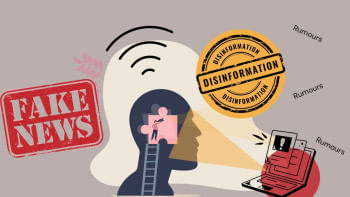
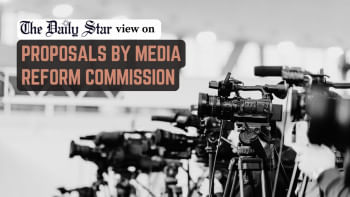
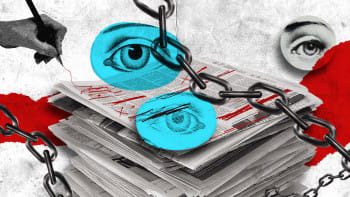
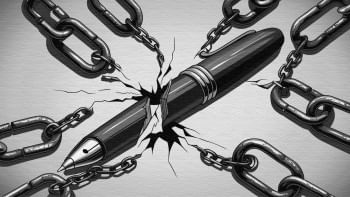
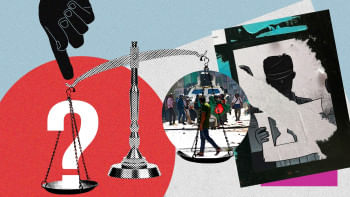


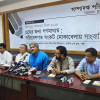

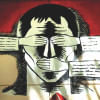

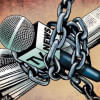


Comments